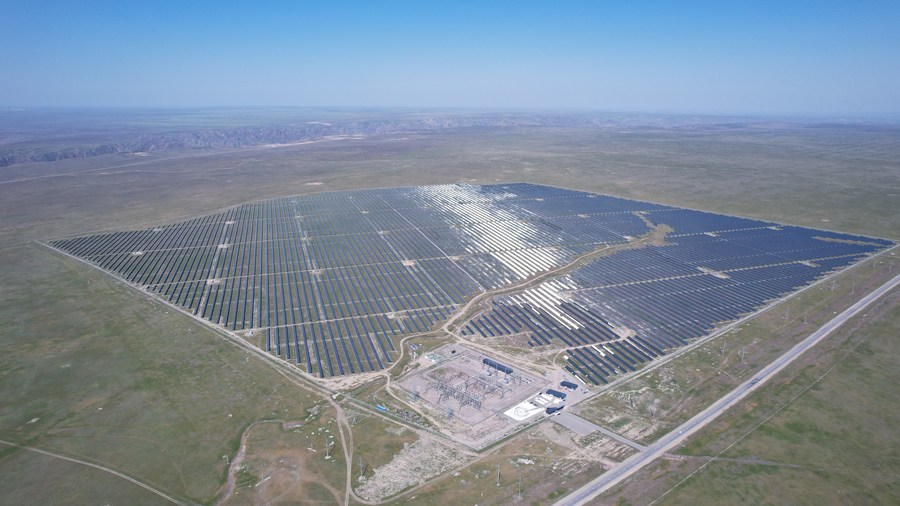(BRF2023) Interview: Former senior UN official says BRI top impetus for global green development

This aerial photo taken on May 4, 2023 shows a photovoltaic power station of Almaty in Kazakhstan. (Photo by Kalizhan Ospanov/Xinhua)
The BRI has contributed very important green rail corridors in Kenya, Ethiopia, Laos and most recently in Indonesia. Overseas BRI projects have been paying much emphasize on local environmental protection, fostering harmonious development of human and nature.
by Xinhua writer Yin Xiaosheng
BEIJING, Oct. 21 (Xinhua) -- "On the ten years anniversary we can declare the Belt and Road Initiative (BRI) an amazingly successful initiative", said Erik Solheim, chairman of the Europe-Asia Center, former Under-Secretary-General of the United Nations.
Commending the pioneering role of the initiative in promoting employment and alleviating poverty, Solheim said, "Nearly 150 countries take part in the BRI and benefit from the investments, trade, technology transfer and people to people contact with China."
Solheim, former Executive Director of the United Nations Environment Programme, highly appreciated the accomplishments of the initiative in advancing sustainable development.
"China has defeated air and water pollution much faster than any other nation," he said, referring to China's Zhejiang province as a world leader in river conservation, and the cities of Hangzhou, Suzhou and Shenzhen as among the world's greenest cities. "This gives China enormous strength in sharing experiences with other nations."
The BRI, he said, has contributed very important green rail corridors in Kenya, Ethiopia, Laos and most recently in Indonesia. Overseas BRI projects have been paying much emphasize on local environmental protection, fostering harmonious development of human and nature.
Solheim also spoke positively of China's decision to stop building coal plants overseas, which "coincide with similar developments in Indonesia, Bangladesh, Kenya and many other nations along the BRI."
"The BRI is progressively greener, with a massive focus on solar, wind, hydro and green transport. In the future, it will be the world's number one vehicle for green investments," he said.
Solheim emphasized the need for increased cooperation between Europe and China, which is "critical for environment protection, global economic development and world peace."
He criticized the "de-risking" narrative as "decoupling" in essence, which is "a stupid and dangerous way of scoring own goals." Both de-risking and decoupling will lead to impoverishment and escalate the likelihood of conflict, he said.
"We need to find the right balance between competition and cooperation. This demands a strong and open dialogue between Europe and China," said the environmental protection expert.
(Li Ruojia contributed to the story)


